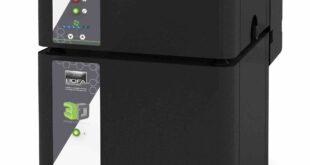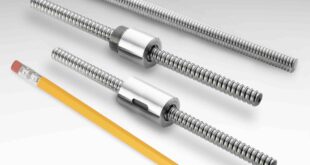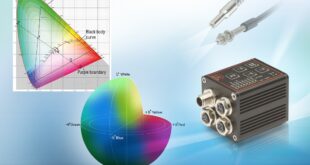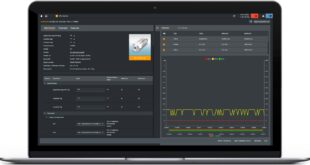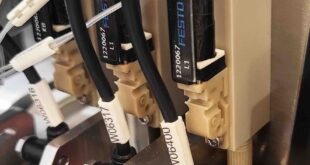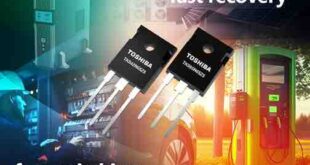The treatment of water and wastewater is an essential task to protect our water resources and reduce our impact on the environment.
However, the energy resources required to carry out such treatment processes also have an impact on the environment; not to mention an impact on the wallet as energy prices continue to rise.
As a result, many wastewater treatment plants are actively pursuing a campaign of improved energy efficiency.
Although this example relates to a sewage treatment works, the processes and equipment involved are very similar to those used in commercial and industrial water treatment applications.
As such, the benefits in efficiency, reliability and operating costs can also be applied here.
Lower energy consumption costs
The municipal wastewater treatment plant in Bayreuth, Germany, wanted to optimise the motors powering the plant in order to improve its energy efficiency and lower its energy consumption costs.
The original system, built in 1999, was composed of multiple 1.5kW Direct On Line (DOL) asynchronous induction motors running at 50Hz. The motors were supplied by Bauer Gear Motor (Type BF50-35A/D09LA4-TF-D) and had been running without any failures since their installation.
However, as their energy efficiency couldn’t reach the levels of the latest technology, it was decided to retire the existing system and specify a hi-tech alternative.
As the original equipment supplier, Bauer Gear Motor, part of Altra Industrial Motion Corporation, was invited to suggest a solution that would continue to operate with the same level of reliability whilst delivering cutting-edge energy efficiency.
Harald Bezold, Chief Machine Operator at the municipal wastewater treatment plant, commented: “We were content with the original Bauer solutions, developed when the wastewater treatment plant was first built. However, after 19 years of service, we felt that intelligent investment could help us to improve our operations.
“As part of the renovation we knew it was essential that we considered the environmental impact of our processes. Our target is to provide the best water management service, at minimal costs, with minimal impact on our surrounding environment.”
Markus Kutny, Business Development Manager for Bauer, added: “We conducted a site review and audit of the existing equipment. We put an inverter on one existing piece of equipment, to measure the behaviour of this application.
“With this data we were able to make a calculation for the customer, to show the benefits of the permanent magnet synchronous motor (PMSM) technology. The theoretical values, savings and behaviour were simulated and presented to the customer.
“In addition to achieving the environmental and performance targets, we were able to create a system that adheres to the most recent Industry 4.0 standards. As such, we added an unprecedented level of motor control to the site.”
The initial request from the client was to replace the original motors with IE3 induction motors – this is what is typically seen as the standard ‘energy efficient solution’ in the water industry.
However, as a result of Bauer’s assessment of the facilities, it became evident that the wastewater treatment plant could further benefit from the specification of permanent magnet synchronous motors running at the same frequency, 50Hz.
The benefit with permanent magnet synchronous motors was not only the energy savings; they also have the advantage for the customer to control all gearmotors direct from the office via ProfiNet Bus system.
A further huge benefit proved to be, that with the intelligent inverter duty and bus system, the service technicians can monitor the performance of the motors and immediately see on the monitor if any application isn´t running well.
The IE3 PMSM technology consumes less energy and requires lower power ratings for the same torque load than equivalent IE3 induction motors.
When the system is running under partial load, the asynchronous motor has a drastically reduced efficiency level compared to permanent magnet synchronous motors under the same conditions.
More precisely, Bauer measured the required power for this application and found that it was lower than the actual running motor power and so they were able to reduce the motor size from the initial 1.5 kW down to 1.1 kW while maintaining the same performance..
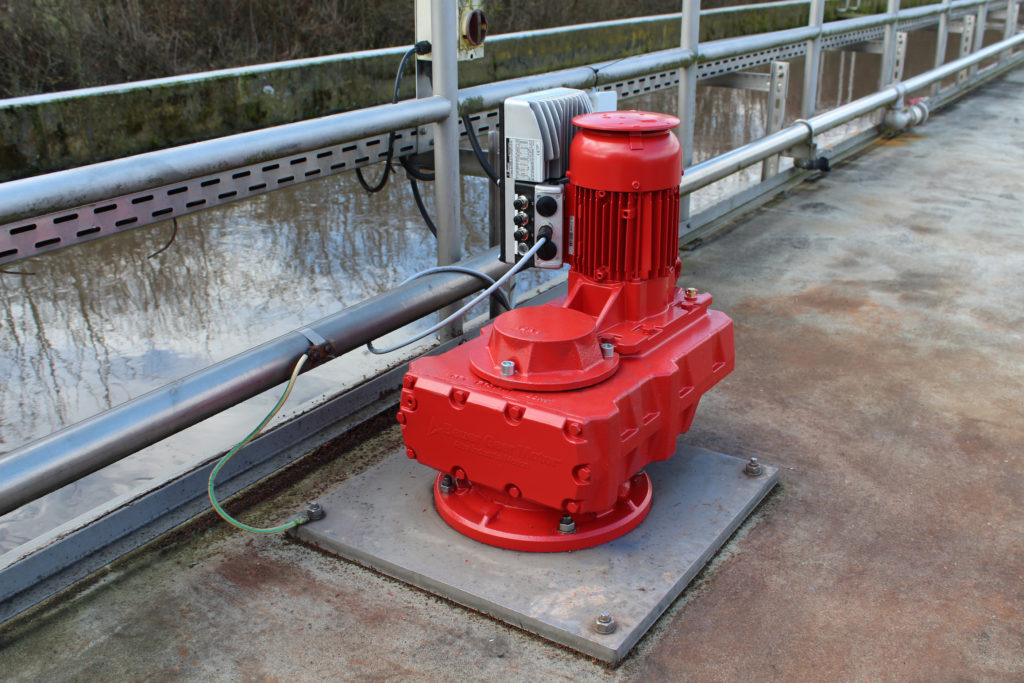
Furthermore, according to the customer’s measurement after the applications were fitted with the new motors, the replacement of induction motors with PMSM alternatives running at 50 Hz could save over 93.000 kW/h per year.
Assuming an energy price of € 0.20kW/h, a reduction of 93.000kW/h translates into over €18,600 saved in a single year.
Another proposal was to use an inverter duty motor to reduce the line frequency without influencing the mixing behaviour.
The result was, that for starting the mixing process the frequency of 50-60Hz was required.
After the wastewater was in motion and the sludge was suspended in the water, the speed could be reduced to 34Hz.
This reduction of speed with the same mixing result and the same treatment quality, offered a potential saving of over 260.000 kW/h in energy consumption and €52,000 in annual energy costs.
The reduced energy consumption of PMSMs compared to standard induction motors are an intrinsic consequence of their design.
While induction motors require an electric current in the rotor to create the induction that turns the rotor and produce torque, permanent magnet synchronous motors rely on a permanent magnet to make the rotor spin.
When compared to similarly rated induction motors, PMSM technology has been shown to offer performance improvements of as much as 40% in some water treatment applications.
As such, many permanent magnet synchronous motors will pay for themselves in a matter of months.
As part of the design process Bauer’s engineers were required to ensure that the new motors would fit within the footprint of the existing motors. This would ensure that the original mountings and gearboxes would not need to be replaced – helping to minimise project costs.
Furthermore, as they were to be located outdoors, it was essential that the new motors were equipped to survive inclement weather as well as the general hazards faced in such an environment.
Protection from dust ingress
Therefore, Bauer opted for motors adhering to IP65 ratings and the associated inverter in IP66, which ensure protection from dust ingress and from high pressure water jets from any direction.
To make the combination of motor and variable-frequency drive effective, single inverters mounted directly on the motors (EtaK2.0 geared motors) were preferred to connecting all the inverters in series.
In this way, if one unit were to fail, it wouldn’t affect the other geared motors, which would continue to work, minimising plant downtime and maintenance costs.
In addition, the new solution provided by Bauer simplified the system and reduced the equipment required.
The built-on inverters in the EtaK2.0 eliminated the need for shielded cables in the plant and powered the motors in a decentralised way, so inverters in control cabinets would not be needed. In this way, maintenance activities were reduced, which resulted in additional cost savings.
Communication and control capabilities
The EtaK2.0 also provides additional communication and control capabilities.
More precisely, the built-on inverters send a constant flow of data to the programmable logic controller (PLC) via the widely used PROFINET industrial ethernet standard connection. This enabled the condition of each unit to be monitored remotely, without the need for physical inspection.
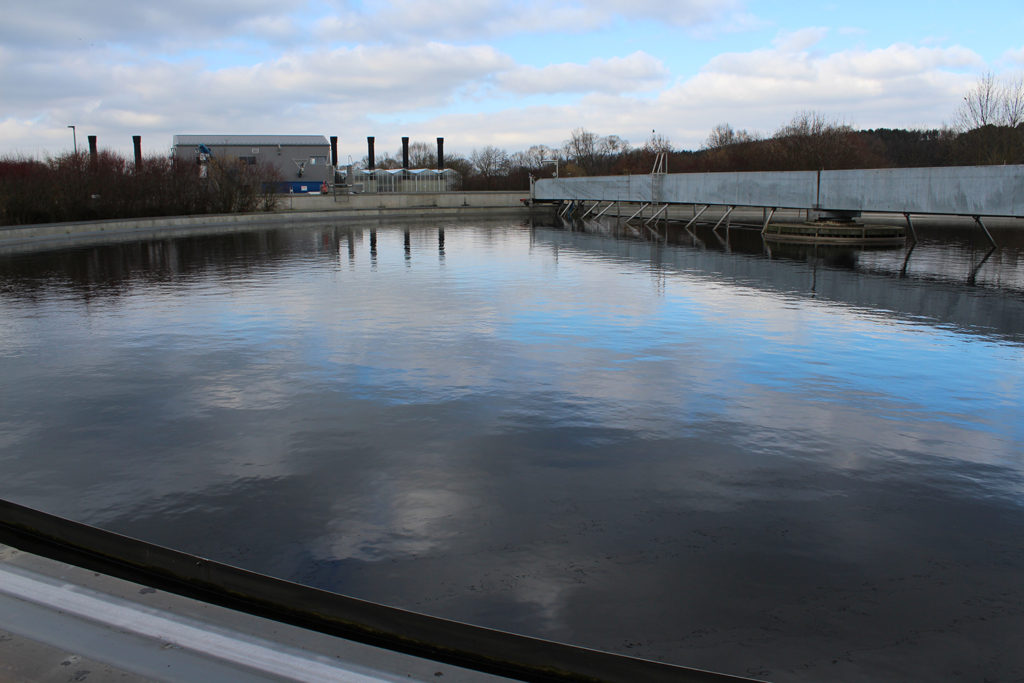
In this way, the wastewater treatment plant could benefit from an automated network and be ready for Industry 4.0 and the Industrial Internet of Things (IIoT). Furthermore, by enabling higher control capabilities, signs of failure could be detected in an easier and quicker way, while minimising maintenance activities and costs.
Harald Bezold continues: “When we approached Bauer’s engineers we told them that we wanted to future-proof the site by ensuring that the solution operated on the newest technology as standard. By creating an automated network we are now able to precisely monitor the performance data of the motors to ensure that they are operating efficiently at all times.”
By working closely with the engineers on site at the Bayreuth municipal wastewater treatment plant, Bauer was able to understand the demands of the application and use its industry expertise to deliver a solution that’s at the forefront of environmental engineering and industrial communications.
Not only did the technology provide measurable improvements in energy efficiency and productivity, it was managed in such a way that no re-engineering was required and disruption was kept to a minimum.
With this project, Bauer proved that energy efficiency improvements can not only reduce the costs for generating, transmitting, and distributing energy from power plants to the end facility, but can also substantially reduce operating and maintenance costs.
 Engineer News Network The ultimate online news and information resource for today’s engineer
Engineer News Network The ultimate online news and information resource for today’s engineer
